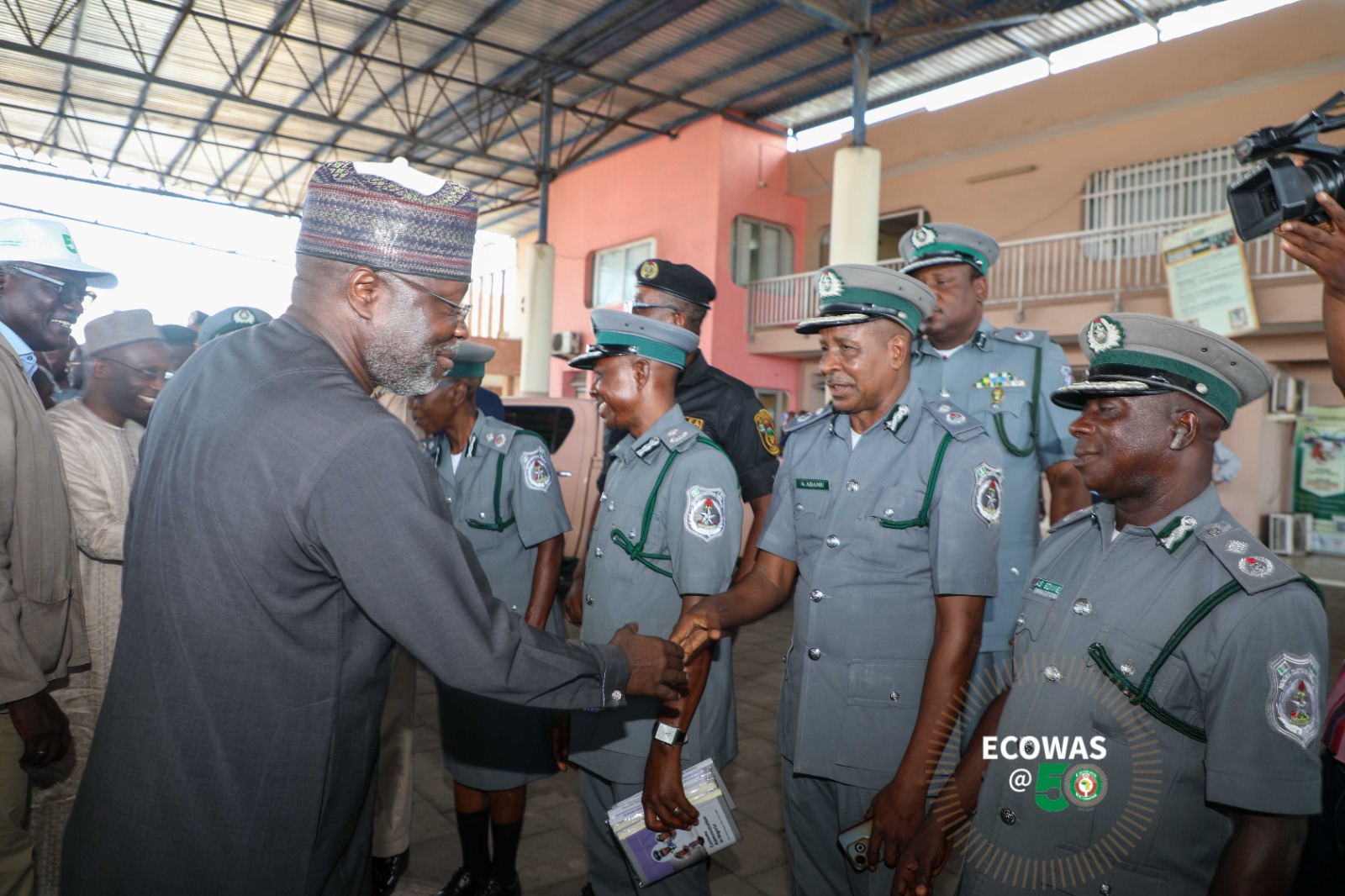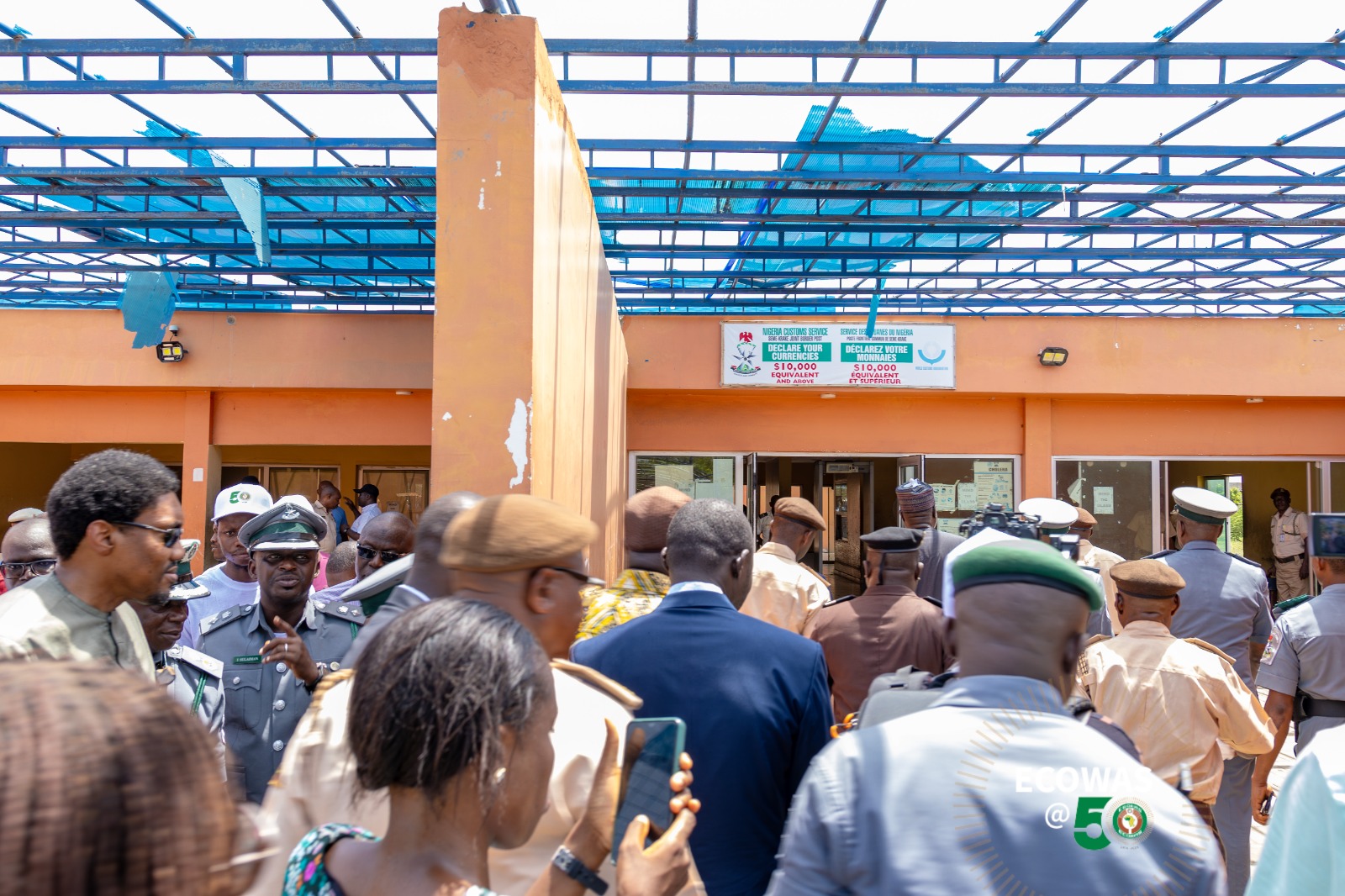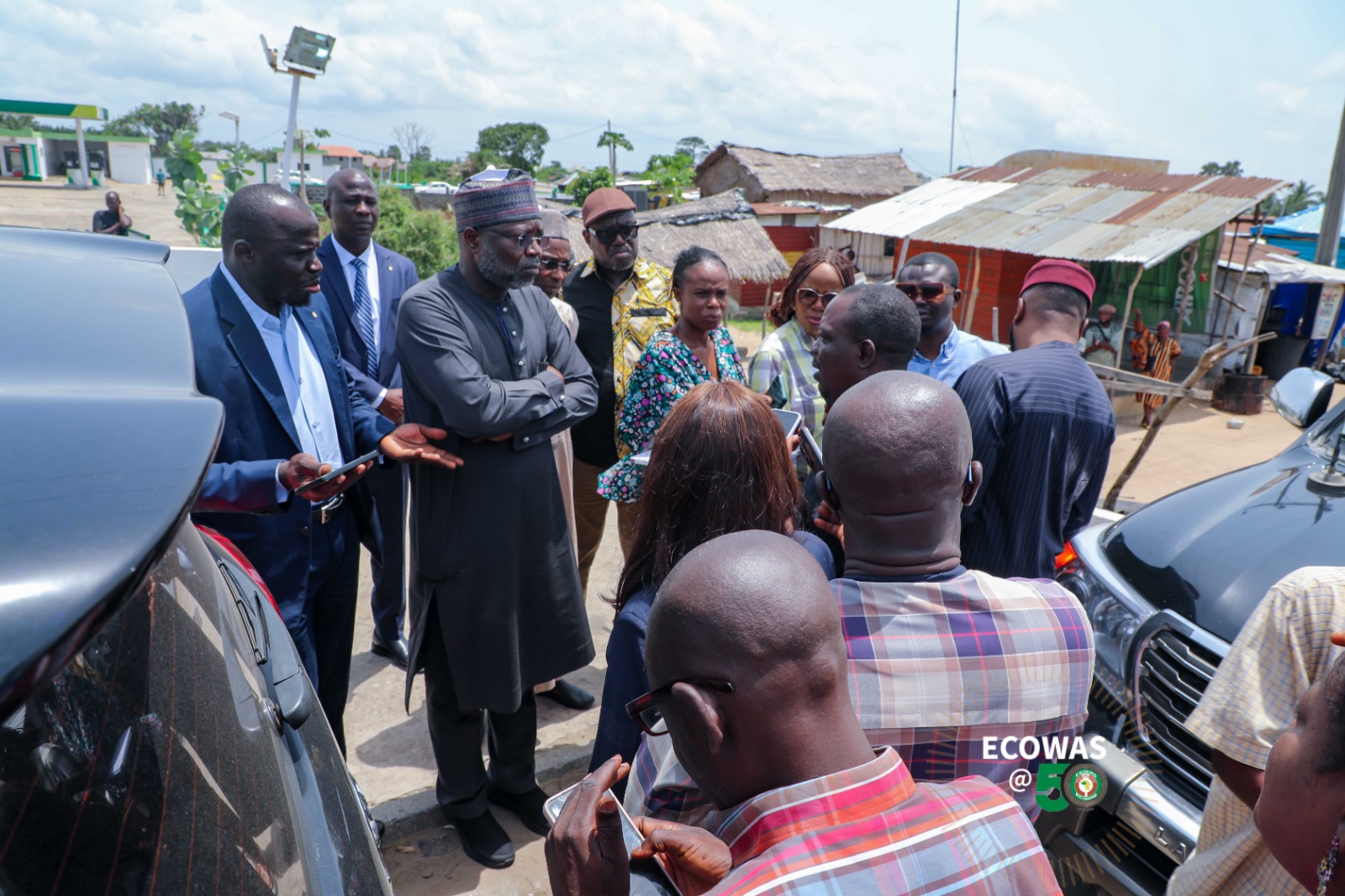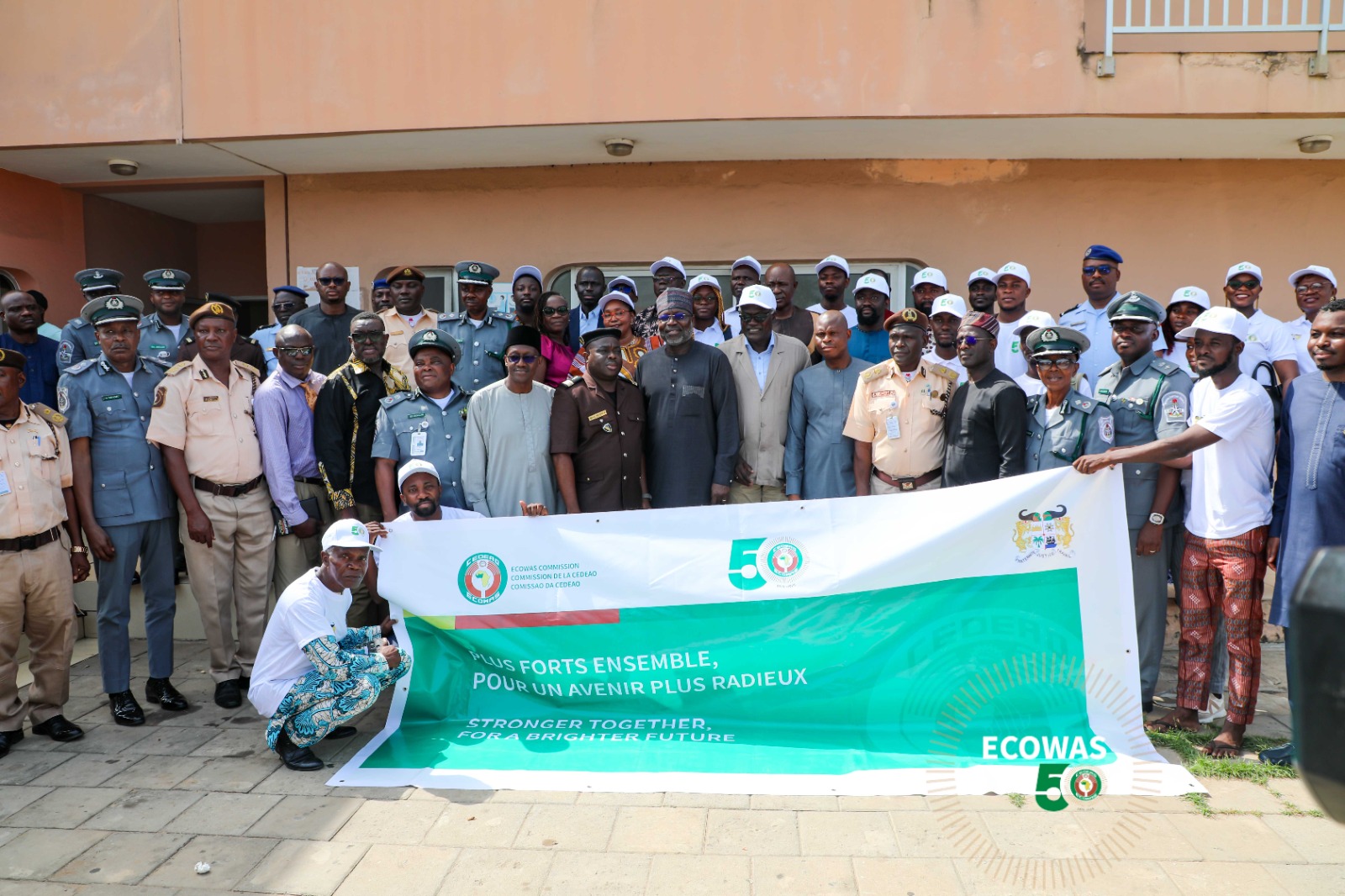ECOWAS deepens engagement with community citizens to advance implementation of free movement protocol across West Africa
09 May, 2025In a renewed effort to enhance free movement of persons and goods and strengthen regional integration and trade across West Africa, the Economic Community of West African States (ECOWAS Commission) is intensifying collaboration with Community citizens and key stakeholders to advance the effective implementation of the ECOWAS Protocol on Free Movement of Persons, Goods, and Services.
As part of this initiative, the President of the ECOWAS Commission, His Excellency Dr. Omar Alieu TOURAY, undertook a working visit to the Nigeria–Benin (Lagos/Seme) Border on Wednesday, 7 May 2025. The visit aimed to assess the state of implementation of the ECOWAS Free Movement Protocol and to engage directly with border officials, national authorities, and Community citizens.
During the visit, H.E. Dr. TOURAY held consultations with representatives of the governments of Nigeria and Benin, as well as other critical stakeholders to explore ways of improving operational efficiency and removing barriers to the seamless movement of people and goods along the Lagos-Seme corridor—one of the busiest border crossings in the region.
Dr. TOURAY was accompanied by Ambassador Musa.S. NUHU, Permanent Representative of Nigeria to ECOWAS; Mr. Albert SIAW-BOATENG, Director of Free Movement at the ECOWAS Commission; Mr. Abdou KOLLEY, Director of Cabinet in the Office of the ECOWAS President; and other senior Commission staff. The delegation visited the Seme-Krake Joint Border Post to inspect the functionality of infrastructure provided by ECOWAS and to interact with Nigerian and Beninois customs and immigration personnel. Speaking during the visit, Dr. TOURAY emphasized the importance of first-hand assessments in understanding the challenges on the ground.
According to Dr. TOURAY, “This visit is important to ECOWAS in many ways. It has enabled us to see how the ECOWAS Protocol on Free Movement is being implemented at this very important corridor which is the busiest in the region. What happens here tells us a lot about the ECOWAS Free Movement Protocol. The challenges we are facing here can be resolved to enable us to replicate what works well here elsewhere.”
“Before arriving at this Joint Border Post, I had the opportunity to interact with Community citizens including transporters, road corridor users and security officials. We have listened carefully to them because the aim of this mission is to listen to them and report back to our authorities with strong recommendations that will work in favour of our Community citizens. It is a pleasure to see this Joint Border Post. It is a structure that has a lot of potential. But it is at the same time disappointing to see that some facilities that cost us a lot of money are not working.”
He added, “We can’t continue to have expensive infrastructure of this nature and not having them work. This visit has enabled us to really have a good idea of how things are so that we can address the challenges because I don’t think that our Community will forgive us for having infrastructure in place that should be working at an optimal level, but it is not working. We will dig into this to see how we can make it work.”
Reaffirming the ECOWAS Commission’s commitment to removing operational bottlenecks, Dr. TOURAY called on citizens to uphold their responsibilities by traveling with proper identification.
“I want to use this opportunity to also appeal to our Community citizens to always bear in mind that free movement does not mean no documentation. The appropriate identification papers, security checks, and customs procedures remain necessary to balance openness with safety and order. Our people must understand that they need valid identification to travel. Security and freedom must go hand in hand,” Dr. TOURAY said.
In his remarks, Nigeria’s Permanent Representative to ECOWAS, Ambassador Musa S. NUHU praised the ECOWAS President for undertaking the on-the-ground visit and highlighted Nigeria’s efforts to improve compliance with the ECOWAS Protocol. He noted that the Nigerian government has established a Presidential Task Force to dismantle illegal checkpoints along the corridor to facilitate smoother cross-border movement.
In an interactive session with Dr. TOURAY, Nigerian and Beninois customs and immigration officials at the Joint Border Post commended the visit and appealed for ECOWAS support in repairing key infrastructure—including scanners, weighbridges, electricity supply systems, and water facilities. They expressed confidence that the President’s visit would lead to enhanced infrastructure and more efficient border operations.
The ECOWAS Commission continues to prioritize initiatives that enhance trade, mobility, and security, thereby fostering deeper integration and improved livelihoods for all Community citizens across the West African region.




















